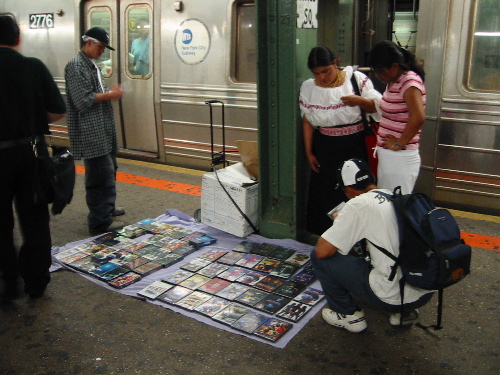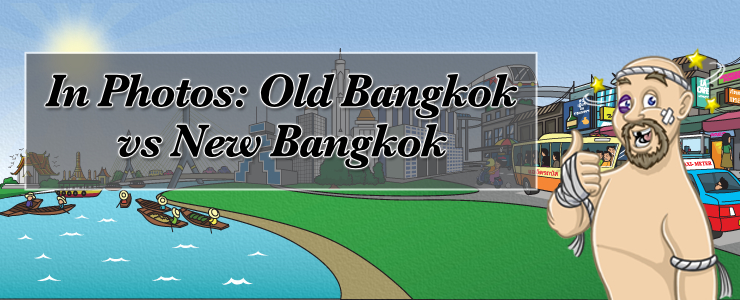The longer you live overseas, the bigger the chasm between ‘normal’ in the motherland and ‘normal’ in your new adopted home becomes. The things that seemed crazy, strange, unique, weird or even offensive when you first moved here eventually become normal, and it’s often hard to remember which aspect of your new life your friends back home would find odd. I was struck with this feeling today when I read a Wired.com article on an MPAA press release instructing people how to detect counterfeit DVDs. How cute.
The Wired.com story that covered the release was written in an appropriately sardonic style, as it seems that huge media corporations have a really hard time understanding how the general public, um… functions as a society (take, for example, the legendarily awful Windows 7 Launch Party video that tried to be hip but generally made viewers cringe with embarrassment).
From the MPAA release:
*Watch for titles that are too new to be true. Movies that have yet to be released in theaters, or that are still out in theaters, are not legally available to consumers. If very recent titles are being sold, they are almost invariably illegal copies.
*Other telltale signs: Loose cellophane packaging, poorly reproduced labeling, lack of holographic labeling, cut-rate pricing, or sales made from street vendors out of a box or a backpack on the sidewalk.

“You mean that this isn’t the latest Blockbuster location? I am outraged!”
Clearly, the organization thinks that someone buying a DVD at a bus stop out of the backpack of a guy named Rizzo with a ‘Fuck Tha Police’ T-shirt would be shocked – shocked! – to learn that it might not be legit. I could go off on a tangent here and get into the coming sea-change that will completely redefine media creation and distribution, but I’ll save it for another post. The bottom line is that most people know they’re fake, and they don’t care. The MPAA and similar organizations are using a centuries-old model of creation/distribution/ownership that just doesn’t work anymore.
What got me thinking was, I don’t think I know anyone back home who has ever even seen a fake DVD for sale. But in Bangkok, as well as most Asian cities, I barely know anyone who buys real ones. It also reminded me, as a bit of an aside, of a Sex and the City episode I saw a few years ago (I, uh, accidentally saw it). In it, one of the women found a guy who was selling fake Gucci purses and it was a HUGE deal. Even then, I thought to myself, “Oh yeah, that’s still a pretty big thing in the US.”. It just struck me as interesting how one’s perceptions change over time when you are exposed to a different set of rules.
As an added bonus, check out the below video, released earlier this year, that shows in jaw-dropping detail just how out of touch with their customers many media companies are. Wow. Just… wow.





Best. Music video. Ever. Prizon h4zing r00lzzz!@!!!1
Copyright restrictions in the digital age are illogical, since the marginal cost of reproduction is effectively zero. In this scenario market economics dictate that the price must drop toward zero. And that’s what we’re seeing. More films were released in the U.S. in 2009 than any previous year in history. The music industry is the largest it has every been. Revenue streams are simply shifting away from plastic discs and towards live shows, merchandise, and other actual scarcities, not artificial scarcities created by DRM or outdated laws.
If the public moral compass is this far out of line with the law, then the law needs to be changed, not public behavior. The old system is broken. Long live human culture.
I may have just made some enemies among your other readers. Oh, well.
~
[Dammit Rikker, teach me to write as succinctly as you do! Heh. It’s interesting to note that in China, you can’t even buy a real DVD or CD of you try. Digital media is used a promotional tool and nothing else; artists make their money from concerts and endorsements. I think we’ll likely see things start to shift in that direction as the natural evolution of the industry. ~Greg]
My favorite thing is the FBI or Interpol warnings at the beginning of pirated movies! Or the little PSA’s about buying authentic copies! Hehehehe!
Nice post, Greg. I especially like when you said, “The MPAA and similar organizations are using a centuries-old model of creation/distribution/ownership that just doesn’t work anymore.”
The problem is that the MPAA, movie studios, and record companies have no idea of how they are going to compete with the online world. It’s not even a case of competing against each other anymore; they have to compete with every independent musician, vlogger, and filmmaker that puts out their own stuff – often times for free. There’s such an overabundance of stuff out there now that people are finding things they like they are staying away from the corporation’s products.
Streaming media is the wave of the future, iTunes/MP3 will eventually remove DRM restrictions, and people are finally fed up with paying $20 for a CD that has one song they like.
I have seen people in NYC selling fake DVDs all the time, but I’ve never bought one. Since I work in the video retail business I feel like that is taking money out of my own pocket, but clearly the business model is changing much faster than the big media corporations want it to.
Fact is the music industry as a middleman between artist and cosumer is redundant. And who said artists are always motivated by money? most of them are not. some just happen to get rich by the stuff they did. doesn’t mean that without prospects of cash there won’t be art anymore. enuff said.
Btw. sursprised that you don’t know anyone who buys original DVDs in Bangkok. Cause i only buy originals. Too many times i bought copys that turned out to be not watchable cam’ed rips of the latest movies. I can download them as torrents, at least i can read the comments if the quality is okay. I usually buy discounted dvd for not more than 100 baht each. every dvd shop got some in the front. They are not the latest movies, maybe 1 year +old, but you have the best quality and all the subtitles. They are all thai and english dubbed with thai and english subtitles.
Thanks for the comments all, it seems like this topic gets a lot of interest from people across the spectrum. I think the whole issue is that the RIAA, MPAA et al have realized that new technology essentially makes them (almost) obsolete and they will do anything to hold on to their control. Can’t really blame them though, it’s a natural response – I bet there were a lot of pissed off horse buggy makers when the Model T came out. Part of it is also that they don’t get to dictate terms and influence industry direction anymore. As Henry Ford said: “If I’d asked my customer what they wanted, they would have said a faster horse.”
The biggest problem now compared to when the VCR, MC, Computer, CD and DVD recorder made the industry “die” is that the lobby takes a very tight grip of governments all over the globe. Civil rights get trashed to protect sales numbers of private companies somewhere every week and that really makes me worry.
Maybe cause it’s the first time the “copy theft” is trackable, IP numbers are a convenient way to sue someone which was not possible when people just recorded the radio songs on their Cassettes. Oh what a pain in the ass the was btw.